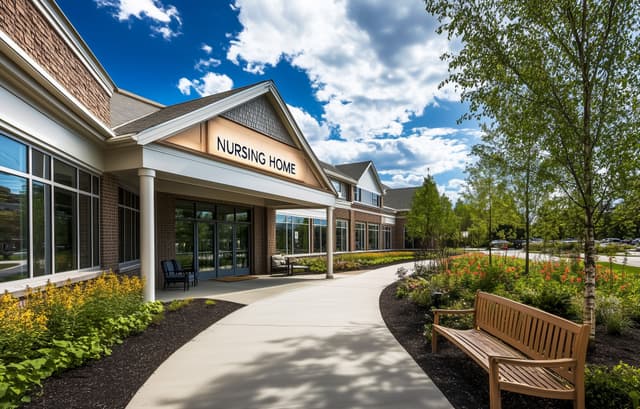
Molly brings a wealth of knowledge and legal experience as a paralegal to Michael Hill Trial Law. She is a graduate of Joliet College, where she earned two degrees. Molly began her career in the legal field in 1999. She furthered her legal knowledge with a degree in paralegal studies from Calumet College of St. Joseph. With 25 years of experience in the legal field and multiple degrees, Molly is well equipped to tackle any legal challenge.
In her professional role at Michael Hill Trial Law, Molly is committed to assisting the team and clients in bringing justice to those who have been harmed through neglect and abuse at the hands of nursing homes and assisted living facilities. This role allows her to bring her natural compassion and empathy to our clients while assisting them to gain accountability and further our mission of changing the nursing home industry. Her motto is to always choose kindness, to leave it better than you found it, and to treat others the way you want to be treated.
Originally from Illinois, Molly resides in the historic city of Marshall, Michigan, with her husband, two children, and four beloved rescued pets. In her off time, Molly enjoys spending precious time with her family, paper crafting, tending to her summer gardens, enjoying time with nature, and cheering on the Chicago Blackhawks.
view all resources

When families place an elderly loved one in a nursing home, they expect the facility to provide safe conditions, competent care, and appropriate supervision. Unfortunately, many nursing homes fail to meet these basic obligations. At Michael Hill Trial Law, we regularly work with families who discover that serious injuries or declining health were not inevitable consequences of aging, but the result of nursing home negligence.
Civil liability plays a critical role in holding nursing homes accountable when residents are harmed. Understanding how civil liability works, what constitutes negligence, and how Ohio law applies can help families protect their loved ones and pursue justice when standards of care are violated.

Deciding to place a loved one in a nursing home is one of the most difficult choices a family can face. It often happens during moments of crisis — after a fall, hospitalization, or sudden health decline — when emotions are high and time feels limited. At Michael Hill Trial Law, we frequently hear from families who later realize that a nursing home admission may not have been handled lawfully or ethically.
While nursing homes play an important role in elder care, not every admission follows the law. In some cases, residents are admitted without proper consent, misled about their rights, or pressured into placement that primarily benefits the facility rather than the individual. Understanding when a nursing home admission may be considered unlawful is essential to protecting elderly residents and their families.

Most families assume that nursing homes are closely monitored and held to high standards of care. While regulations do exist, many people are surprised to learn how often nursing homes violate those rules — and how serious the consequences can be for elderly residents. At Michael Hill Trial Law, we frequently help families who uncover troubling inspection histories only after their loved one has already been harmed.
Understanding how nursing homes are regulated and inspected in Ohio empowers families to make informed decisions, recognize warning signs early, and take action when a facility fails to meet its legal obligations.

When families place a loved one in a nursing home, they expect professional medical care, proper supervision, and timely treatment. Unfortunately, medical negligence in nursing homes is far more common than many people realize. At Michael Hill Trial Law, we regularly assist families who discover that serious injuries or worsening health conditions could have been prevented with proper care.
Medical negligence in a nursing home setting can take many forms — from medication errors to delayed diagnoses or failure to respond to medical emergencies. Understanding who is legally responsible is a crucial step for families seeking answers, accountability, and justice for their loved ones.